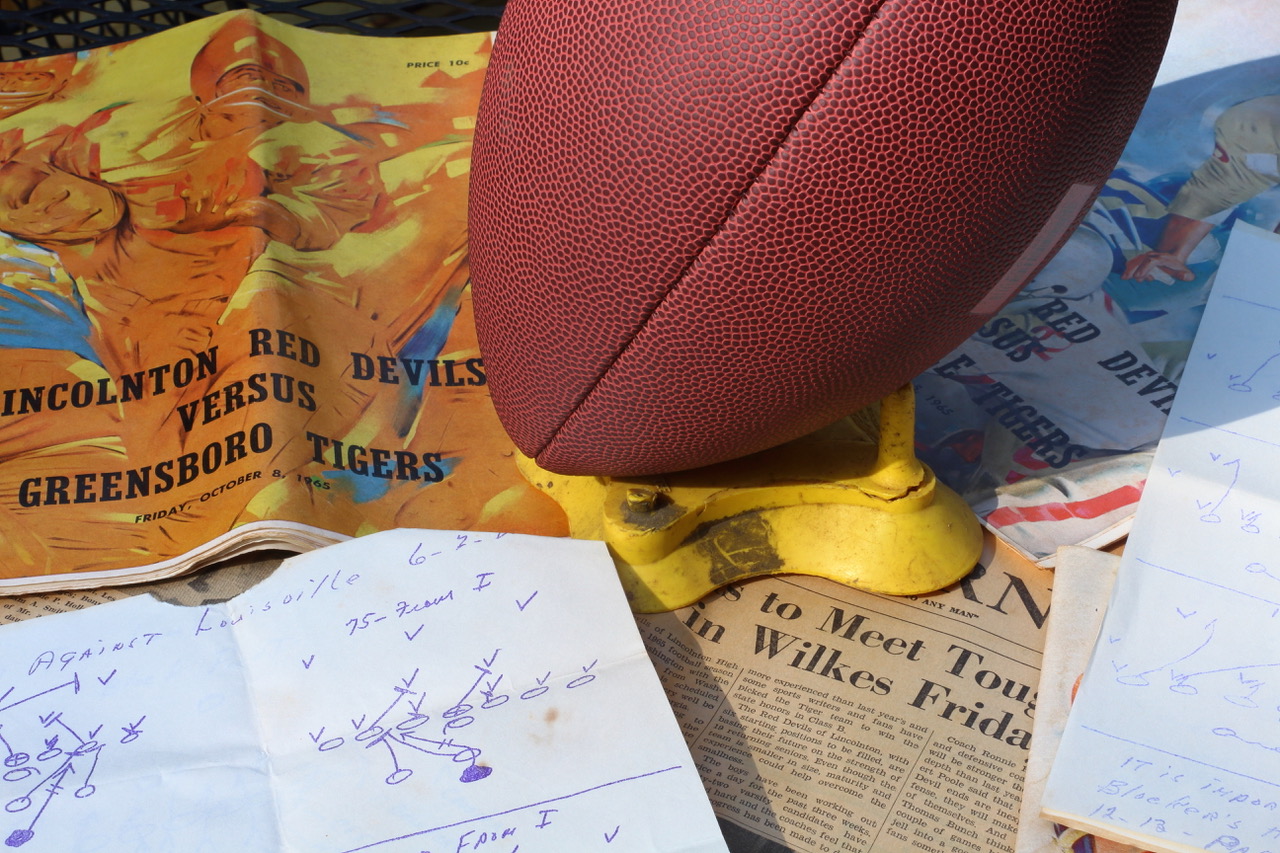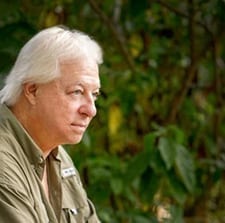Running With Ghosts
March 27, 2024By Tom Poland
I dreamed I was in a football game again. Then I awoke. Such disappointment. Other than playing in a game again, the next best thing would be watching my old game films, an impossibility. Properly stored 16mm film can last 70 years, but those old 16 mm projectors surely saw the landfill long ago. There was just no way to see them.
I contacted Red Devil curator, Johnny Walton. “Did any of my old game films survive?” Johnny sent me a message. “You can see game films from your high school years online.” Through the miracle of digital technology a few games were there—Wadley, Sparta, Louisville, Putnam County, Mount de Sales, and Greensboro. In flickering light my teammates and I took the field again.

Relics from youth.
We went a pedestrian 7-3. Unlike the teams of the early 1960s we left no legacy. Not one trophy. Not one scholarship awarded. I better recall my 1964 and 1965 teams. Over two seasons we went 15-3-2 and shut out 10 opponents. Even so, we were a letdown. The 1963 team’s Great Red Wall shut out ten of twelve opponents in one season and won the state championship. (The six teams that followed my ’66 team went a combined 25-29-4. In 1973 a Larry Campbell-coached team went 8-1-1, and the greatest run in Red Devil history had begun.)
Those old game films? They had no sound. Some online versions feature soundtracks. In one, the Beach Boys’ “Surfer Girl” plays. Seems I hear a Jan and Dean track, the California sound the Beatles killed off. The camera work is primitive. The camera hovers over the line of scrimmage, perhaps a limitation of the lens. Anyone in the secondary might as well not exist. Even so, the images bring back memories. You remember, that is you think you remember, the plays. You feel the hits once again. Hephzibah 1966. We’re wearing red jerseys though playing away. Our helmets look out of date because they are. We won 18 to 6.
I watched the old films in a mild state of time travel shock. Like some scene from a silent film of the early 1900s, No. 13 runs with ghosts in out-of-focus scenes that unfold in slow, dream-like images. I make a run, 20 yards, against Putnam County only to fumble when hit up high. Other games; other players. Sammy Evans, No. 21, drops back, breaks and runs for five yards. Dwaine Biggerstaff, No. 40, takes the ball up the gut for a score. No. 70, Leon Cox, takes measured strides. His approach seems stiff as he kicks the ball. The soccer boys’ sidewinding style had yet to arrive. Once it did, the straight-ahead kick was done. And after a drubbing from Warrenton, 47-0, we were done, our playing days over.
—
When I tell folks I’m from Lincolnton, Georgia, some ask a question.
“They have good teams down there. Did you play?”
“I did,” I say. “My senior team was average. No athletes.” It was true. As proof, too few players went out for track team in the spring of ’67. No team, a sore spot with me still. I had gone to state the year before in the 440-yard dash. There would be no chance to go back. No chance to do better.
A lot of fellows I meet tell me they never played football. “Why not,” I ask. “Too rough a sport. My mother didn’t want me to get hurt. Our team was terrible.” I see, I say, and what I see are men who missed out on a great experience. You only go around once. Give it all you have. For those who do, the reward is great memories, win, lose, or draw.
Sixteen seniors played on the 1966 team. Six are gone now to heart attacks, strokes, a car wreck, and sheer bad luck. I return to those grainy slow-motion films some evenings. It’s like watching ghosts by candlelight on a field that has become a kind of cemetery where dead men rise from the ground to play ball once again, but no track. Their running days were over.
Georgia native Tom Poland writes a weekly column about the South, its people, traditions, lifestyle, and culture and speaks frequently to groups in the South. Governor Henry McMaster conferred the Order of the Palmetto upon Tom, South Carolina’s highest civilian honor, stating, “His work is exceptional to the state.” Poland’s work appears in books, magazines, journals, and newspapers throughout the South.
Visit Tom’s website at www.tompoland.net
Email him at [email protected]






















